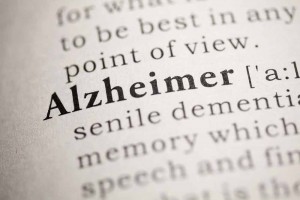-
Health & Wellness
Mitochondrial Dysfunction Present Early in Alzheimer’s, Before Memory Loss
ROCHESTER, Minn. — Mitochondria — subunits inside cells that produce energy — have long been thought to play a role in Alzheimer's disease. Now Mayo Clinic researchers using genetic mouse models have discovered that mitochondria in the brain are dysfunctional early in the disease. The findings appear in the journal PLoS ONE.
The group looked at mitochondria in three mouse models, each using a different gene shown to cause familial, or early-onset, Alzheimer's disease. The specific mitochondria changes corresponded with the mutation type and included altered mitochondrial movement, structure, and energy dynamics. The changes happened in the brain even before the mice showed any symptoms such as memory loss. The group also found that the mitochondrial changes contributed to the later loss of mitochondrial function and the onset and progression of Alzheimer's disease.

"One of the most significant findings of this study is our discovery of the impact of mitochondrial dysfunction in Alzheimer's disease," says Eugenia Trushina, Ph.D., Mayo Clinic pharmacologist and senior investigator on the study. "We are asking: Can we connect the degree of mitochondrial dysfunction with the progression of symptoms in Alzheimer's disease?"
Enlisting the expertise of Mayo researcher Petras Dzeja, Ph.D., the team applied a relatively new method called metabolomics, which measures the chemical fingerprints of metabolic pathways in the cell — sugars, lipids, nucleotides, amino acids and fatty acids, for example. It assesses what is happening in the body at a given time and at a fine level of detail, giving scientists insight into the cellular processes that underlie a disease. In this case, the metabolomic profiles showed changes in metabolites related to mitochondrial function and energy metabolism, further confirming that altered mitochondrial energetics is at the root of the disease process.
The researchers hope that the panel of metabolomic biomarkers they discovered can eventually be used for early diagnosis, treatment, and monitoring of Alzheimer's progression.
"We expect to validate metabolomic changes in humans with Alzheimer's disease and to use these biomarkers to diagnose the disease before symptoms appear — which is the ideal time to start treatment," Dr. Trushina says.
The team looked at neurons of three different genetic animal models of Alzheimer's disease. Researchers applied a mitochondria-specific dye and observed their motion along axons, a process called axonal trafficking. They showed that even in embryonic neurons afflicted with Alzheimer's disease, well before the mice show any memory loss, mitochondrial axonal trafficking is inhibited. Using a panel of techniques that included electron and light microscopy, they determined that in the brains of mice with Alzheimer's disease, mitochondria tended to lose their integrity, ultimately leading to the loss of function. Importantly, dysfunctional mitochondria were detected at the synapses of neurons involved in maintaining memory.
"We are not looking at the consequences of Alzheimer's disease, but at very early events and molecular mechanisms that lead to the disease," Dr. Trushina says. The next step is looking at the same mitochondrial biomarkers in humans, she says. As the researchers begin to understand more about the mitochondrial dynamics that are altered in Alzheimer's disease, they hope to move on to designing drugs that can restore the abnormal bioenergetics and mitochondrial dynamics to treat the disease.
Other study researchers include Emirhan Nemutlu, Ph.D., Song Zhang, Ph.D., Trace Christensen, Jon Camp, Janny Mesa, Ammar Siddiqui, Ph.D., Thomas Wengenack, and Joseph Poduslo, Ph.D., all of Mayo Clinic; and Yasushi Tamura, Ph.D., and Hiromi Sesaki, Ph.D., of Johns Hopkins University School of Medicine. This work was supported by grants from the Alzheimer's Drug Discovery Foundation and Institute for the Study of Aging, the American Health Assistance Foundation, the Mayo Clinic Alzheimer's Research Center, and the National Institutes of Health.
Media Contact: Brian Kilen, 507-284-5005 (days), newsbureau@mayo.edu
Related Articles







